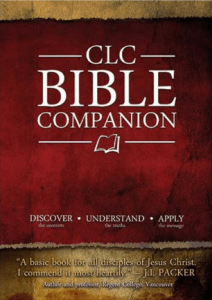Question and Answer with Surrender‘s author John Stanley.

John Stanley
John Stanley serves as a pastor on staff in the worship ministry at Second Baptist Church in Houston, Texas. An internationally recognized composer, arranger, music producer, percussionist, and drummer, he has been part of the professional music scene for over a decade and has worked with multiple award-winning artists, producers, and songwriters. John desires to connect people to God’s Word through written and spoken truth, while encouraging individuals into a deeper relationship with Jesus Christ. John and his wife, Sarah, live in Houston with their two children.
Q1: Please tell us about yourself.
I’m a PK (pastor’s kid) and a native Texan. I grew up with a passion for soccer, which radically changed to music in my teenage years. I didn’t fully commit to music until I was seventeen years old. I went to college for music but left early to pursue music as a career. Starting as a drummer, that pursuit has taken shape into much more as I’ve developed into a composer, arranger, songwriter, and music producer. I love creating music!
I’m on staff in the music ministry at Second Baptist Church in Houston. This church is where I met and married my wife (I fell up a mountain with her!) and where we are raising our family. I love Second and what God is doing through His people here! It is an amazing community.
My wife is the most remarkable woman on earth to me, and I am definitely that “over-proud” dad! HA!
Interesting Fact: English was one of my worst subjects in school. I expound on this in the book!
Q2: How did you come to faith?
I came to know Jesus when I was six, when I asked my father to pull over so I could pray and ask Jesus into my heart. From then on, it’s been a wild ride! I couldn’t make it up if I tried. Christ is my foundation and my hope. The different roles He’s called me into as a husband, father, minister, musician, music maker, and author are a product of my relationship with Him. I truly feel His joy in every one of these roles and callings.
Q3: Can you tell us about the experiences and inspirations that led you to write Surrender?
The writing of Surrender has been a long journey and it’s taken about seven years. It all started with a simple divinely planted desire to write a book, but the subject was not clear. However, on the river journey I call life, God has taken me on a course that has been all about surrender. So, once the ideas began to churn within, the direction became clear rather quickly.
Real surrender is hard. So to be truthful, I really didn’t love the idea of writing this book. But I’ve felt deeply compelled to write because I believe that as followers of Jesus, surrender is the greatest strength to our witness. No matter what circumstances lie ahead and no matter what line of work we are in, we can be a witness and a bold light—and surrender opens that door of confidence with strength. If every believer took the calling of surrender with the utmost priority, I sincerely believe we’d see a radical difference in our world by the impact of our influence across every landscape.
This world is calling out for authenticity, for people to be real, but we’ve been deceived to believe something different. Surrender brings us to our most authentic self in Christ and proclaims God’s abundant faithfulness, despite the raging white water that life can bring.
Q4: Can you tell us the story behind the subtitle of your book (Learning to Navigate Life’s Deep Waters with Christ as Your Guide)?
When I was twelve my parents took my brother and me on a white-water rafting trip. They used this adventure to teach us a valuable life lesson: Life is like a river. You’ll have your calm serene moments, and then you’ll have raging white water. As followers of Jesus, we’ve been given Christ as our Guide to navigate us through the waters ahead. We have a choice: Surrender to the commands of the Guide or trek the river on our own. One way will end in catastrophe. The other way will bring life and victory.
Q5: What are some experiences you would like to share with the readers about the process of writing this book?
Through the journey of writing this book, my wife, children, and I have rafted through some terrifying waters. But we’ve also journeyed through some joyous, fruitful waters that got our adrenaline pumping and rejuvenated our outlook on life. As God is our victor and true Guide, He has faithfully led us through every twist and turn. From dealing with chronic pain, the struggle of pregnancy with our firstborn, and painful and devastating family events that could’ve easily brought destruction, to exciting and nerve-racking musical endeavors, enriching and profound ministry opportunities, and wonderful and awe-striking life experiences . . . it’s been a journey!
All these things have led to the inspiration behind the pages of this book. Being a first-time author has been a bit of a “wow” experience for me. Writer’s block is a very real thing! Frustrations can easily get to you. Finding the time to write, and yes, even rewrite, amid a whirlwind schedule was rough. But what God started He has been faithful to move forward and keep alive. Words are not adequate to express my thankfulness to Him for all He has done and will continue to do.
Q6: What are your favorite books or authors you enjoy reading?
Sacred Marriage by Gary Thomas. This is just an amazing, inspiring book. Anyone who is married, engaged, or dating and thinking about marriage needs to read his book. I love the “BE” series by Warren Wiersbe. He is the author who has probably had the most impact on my life. His commentaries are rich in knowledge and wisdom, but easy to understand. I also enjoy the occasional fictional read.
Q7: What are some things that can hinder us from surrendering? What are your words of encouragement to people who are dealing with those things?
I believe the greatest detriments to surrender are fear and lack of commitment (which is attached to idolatry). Fear will stop you dead in your tracks, and you must be prayerful and diligent in your discernment to know if that fear is healthy or unhealthy. Any fear that drives you away from God is unhealthy.
Lack of commitment and idolatry are other hindrances. Many of us are willing to speak the words that sound right. As a PK, I can talk the talk all day long. But when my actions don’t line up with what’s coming out of my mouth, that declares my commitment. I can tell my wife and kids I love them every day but never do anything to show it. What do you think that would say to them?
Commitment is two-part: saying and doing. We all have roadblocks to the priority we should put on our relationship with Christ, and we’ve allowed some of those roadblocks because of idols we hold dear: work schedules, activities, hobbies, “stuff,” laziness, the influence and popularity of our peers (that doesn’t just die when we get out of high school). We can let the culture of our surroundings dictate our behaviors, rather than allow our behaviors and priorities to be governed by our commitment to Christ.
I’ve heard it said many times, “You don’t understand my working environment or who I’m around. I’ll lose relatability. I’ll lose connectivity.” That speaks volumes about where an individual finds their identity, and it also traces itself back to fear. If we were to take a step outside our perceived reality and truthfully look into our earthly relationships, we’d probably see that this is a lie we’ve come to believe. People want us to be real with who we are and the core truth of what and who we value. Authenticity counts big, especially today in a world where so many authoritative public figures are falling away because of lies and immoral behaviors driven by deception.
Do you want to be real and the most authentic you? Then, as a follower of Jesus, dig into the relationship. He’s your Creator, so from that relationship who you really are will emerge. That version of you will be the best version of you. Pursue the kingdom of God and His righteousness (see Matt. 6:33). Let everything else be influenced by that pursuit. Let the cards fall where they may. Be intentional. Be diligent. Influence and inspire.
Q8: Have you had difficult times surrendering? Please share with us your experiences.
Stepping away from college to pursue music as a career was tough indeed. I was taught my whole life that the only way to success is by getting a college degree. When that’s been ingrained in you from childhood, you better believe that when God begins to move you in a different direction, it’s incomprehensibly scary.
My mother is an educator. My father has two master’s degrees. My brother graduated from college and has become a “Top 40 Under 40” influencer in his field. Taking that path of surrender into dark and deep waters was very difficult. I dealt with shame from family and friends. I felt like I was constantly having to prove myself upon any new endeavor. But, God set a destination ahead and began to guide me there.
I had two choices: Obey and follow His lead or go my own way of what I believed to be “right.” I really don’t even want to consider where I may have ended up if I chose my own way. I’ve not yet reached the destination in full either. I see the river of life as an expedition with God, my family, and me, and it will continue until I depart from this earth. However, I’m excited to see what other adventures await and what discoveries we uncover along the way.
Q9: What do you hope for your readers to gain through Surrender?
Life change—seeing life from a different perspective. I want them to see the beauty that comes from surrender through every circumstance; and, I pray this book brings some clarity on what that looks like. I’m hopeful some questions are answered, and I’m hopeful people will say goodbye to fear and feel embraced by God’s rest and peace as they do so. I’m hopeful readers will take the plunge and trek the river wild with true commitment, tear down any idols that could get in the way, and enjoy the ride!
Q10: Any last thoughts to the readers?
One evening at the dinner table, my son looked at me and said, “Okay Dad . . . tell me about life.” My daughter eagerly looked on. My mind scrambled through my thoughts for a quick response, “Life is a gift,” I said. Today, if you were walking around our house, at any random moment of the day you might hear my son say, “You know what you guys? Life is a gift!” It’s a great reminder because it really is.
I pray you’re blessed by this book. Enjoy the adventure of life! Where God leads may not be what you had envisioned, but I promise it will be the perfect fit for how He molded you in your creation so that you may have the greatest impact on those He wants you to influence. Life is like a river, and God is the perfect navigator. Grace and peace to you.
 In Surrender, John Stanley encourages readers in the call upon every Christian’s life to daily die to self and surrender—in salvation and in every single circumstance. Expertly weaving together Scripture, personal anecdotes, and a white-water rafting story, John explores what a truly surrendered life can look like, and how that provides a new outlook on what it means to live a satisfied, joyful life. To learn more about the book and order a copy, please visit https://www.clcpublications.com/shop/surrender-learning-to-navigate-lifes-deep-waters-with-christ-as-your-guide/
In Surrender, John Stanley encourages readers in the call upon every Christian’s life to daily die to self and surrender—in salvation and in every single circumstance. Expertly weaving together Scripture, personal anecdotes, and a white-water rafting story, John explores what a truly surrendered life can look like, and how that provides a new outlook on what it means to live a satisfied, joyful life. To learn more about the book and order a copy, please visit https://www.clcpublications.com/shop/surrender-learning-to-navigate-lifes-deep-waters-with-christ-as-your-guide/
 About CLC Publications: CLC Publications (formerly Christian Literature Crusade) is the English language publishing house for CLC Ministries International. Headquartered in Fort Washington, PA, CLC has published books for the Deeper Christian Life for over 50 years. Our focus has been to publish books by trusted authors with a clear and timeless message. Some of our better known authors from the past include Watchman Nee, Corrie ten Boom, Amy Carmichael, Andrew Murray and Roy Hession. As a part of CLC International, our books are sold and distributed in countries all over the world including but not limited to the UK, Australia, New Zealand, Canada, South Africa, India, the West Indies, and the Philippines. We are committed to being a significant part of fulfilling CLC’s international purpose of making evangelical Christian literature available to all nations so that people may come to faith and maturity in our Lord Jesus Christ.
About CLC Publications: CLC Publications (formerly Christian Literature Crusade) is the English language publishing house for CLC Ministries International. Headquartered in Fort Washington, PA, CLC has published books for the Deeper Christian Life for over 50 years. Our focus has been to publish books by trusted authors with a clear and timeless message. Some of our better known authors from the past include Watchman Nee, Corrie ten Boom, Amy Carmichael, Andrew Murray and Roy Hession. As a part of CLC International, our books are sold and distributed in countries all over the world including but not limited to the UK, Australia, New Zealand, Canada, South Africa, India, the West Indies, and the Philippines. We are committed to being a significant part of fulfilling CLC’s international purpose of making evangelical Christian literature available to all nations so that people may come to faith and maturity in our Lord Jesus Christ.
 About John Stanley: John Stanley serves as a pastor on staff in the worship ministry at Second Baptist Church in Houston, Texas. An internationally recognized composer, arranger, music producer, percussionist, and drummer, he has been part of the professional music scene for over a decade and has worked with multiple award-winning artists, producers, and songwriters. John desires to connect people to God’s Word through written and spoken truth, while encouraging individuals into a deeper relationship with Jesus Christ. John and his wife, Sarah, live in Houston with their two children. To learn more about the author, please visit https://www.clcpublications.com/authors/john-stanley/
About John Stanley: John Stanley serves as a pastor on staff in the worship ministry at Second Baptist Church in Houston, Texas. An internationally recognized composer, arranger, music producer, percussionist, and drummer, he has been part of the professional music scene for over a decade and has worked with multiple award-winning artists, producers, and songwriters. John desires to connect people to God’s Word through written and spoken truth, while encouraging individuals into a deeper relationship with Jesus Christ. John and his wife, Sarah, live in Houston with their two children. To learn more about the author, please visit https://www.clcpublications.com/authors/john-stanley/ About Surrender: In Surrender, John Stanley encourages readers in the call upon every Christian’s life to daily die to self and surrender—in salvation and in every single circumstance. Expertly weaving together Scripture, personal anecdotes, and a white-water rafting story, John explores what a truly surrendered life can look like, and how that provides a new outlook on what it means to live a satisfied, joyful life. To learn more about the book and order a copy, please visit https://www.clcpublications.com/shop/surrender-learning-to-navigate-lifes-deep-waters-with-christ-as-your-guide/
About Surrender: In Surrender, John Stanley encourages readers in the call upon every Christian’s life to daily die to self and surrender—in salvation and in every single circumstance. Expertly weaving together Scripture, personal anecdotes, and a white-water rafting story, John explores what a truly surrendered life can look like, and how that provides a new outlook on what it means to live a satisfied, joyful life. To learn more about the book and order a copy, please visit https://www.clcpublications.com/shop/surrender-learning-to-navigate-lifes-deep-waters-with-christ-as-your-guide/

 About The CLC Bible Companion The CLC Bible Companion is an all-in-one guide to the Bible that is both a comprehensive reference book and an exciting companion. Its goals for you are to: Know Jesus Christ, Discover the Contents of the Bible, Explore the Truth of the Bible, and Believe and Experience the Message of the Bible. The CLC Bible Companion is on special promotion for a limited time, you may purchase the CLC Bible Companion for $10.00 while supplies last. (retail price $29.99 for hardcover) To learn more about the CLC Bible Companion and purchase, please visit:
About The CLC Bible Companion The CLC Bible Companion is an all-in-one guide to the Bible that is both a comprehensive reference book and an exciting companion. Its goals for you are to: Know Jesus Christ, Discover the Contents of the Bible, Explore the Truth of the Bible, and Believe and Experience the Message of the Bible. The CLC Bible Companion is on special promotion for a limited time, you may purchase the CLC Bible Companion for $10.00 while supplies last. (retail price $29.99 for hardcover) To learn more about the CLC Bible Companion and purchase, please visit: 